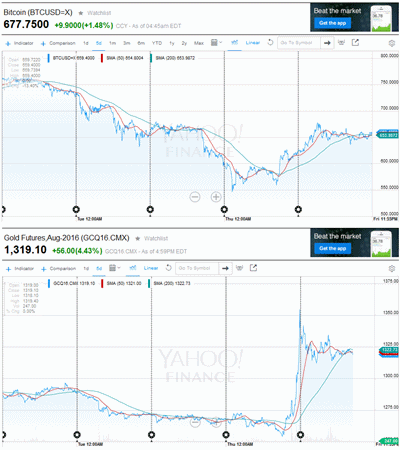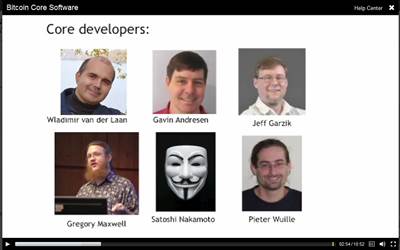The UK electorate again addressed the question on 23 June 2016, in a referendum on the country's membership. This referendum was arranged by Parliament when it passed the European Union Referendum Act 2015. The result of this referendum held in June 2016 was 51.9% in support of an exit (17,410,742 votes) and 48.1% (16,141,241 votes) to remain.
On a whim, I looked at 'bitcoin brexit', and discovered that the bitcoin price spiked as the result of the vote became known. Since the price of gold also spiked, I wondered if there was any correlation. The following charts, from finance.yahoo.com, show the price action in both commodities over the last week.
Bitcoin (BTCUSD=X)

Gold Futures,Aug-2016
Although other factors were moving the price of bitcoin on the days before the vote, the Brexit result moved the price over the next hours before finding an equilibrium. Bitcoin enthusiasts like to promote the crypto-currency as a stable Store of value (wikipedia.org again)...
A store of value is the function of an asset that can be saved, retrieved and exchanged at a later time, and be predictably useful when retrieved. The most common store of value in modern times has been money, currency, or a commodity like gold, or financial capital. The point of any store of value is risk management due to a stable demand for the underlying asset.
...but is it really? One point of view is Bitcoin as a Store of Value, Unit of Account, and Medium of Exchange (nakamotoinstitute.org), illustrated with a picture of King Kong.
